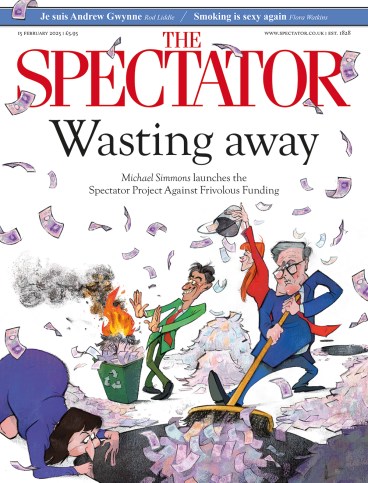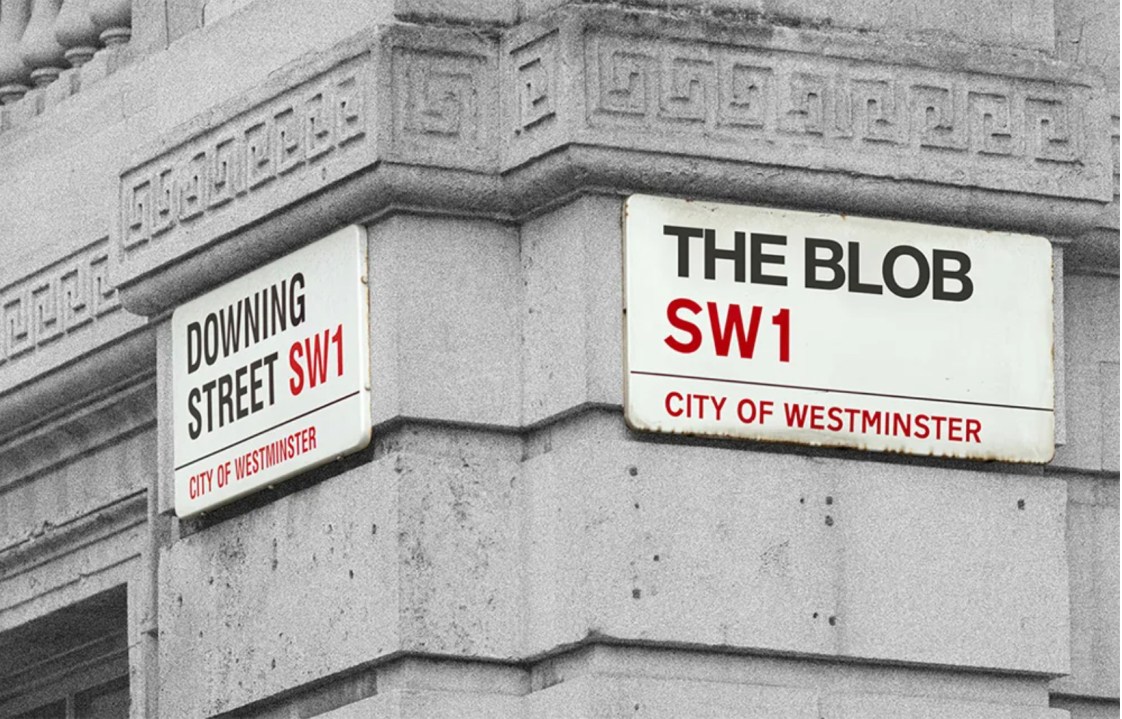
I am delighted that The Spectator is launching a campaign to highlight the grotesque levels of financial waste in government. Of course public sectors worldwide have always defaulted towards profligacy – but we are in different territory now.
Our GDP per capita is declining: through immigration, the population is growing faster than the real economy is growing. We have no more capacity to borrow – we are already paying 25 per cent more than the Italian government for ten-year debt. Keir Starmer and Rachel Reeves love to talk bullishly about growth, but they don’t understand that taxing the productive sector more and more and discouraging employment through onerous new regulations will stifle the economy.
That leaves public waste – £200 billion of unproductive spending. Britain’s wealth is leaking away as we borrow yet more money to then waste it.
In 2020 I was given the Pythonesque title of ‘minister for efficiency and transformation’. It was like turning up to a blazing building with a seaside bucket. On my first day in office, I met the then Permanent Secretary to the Treasury. He told me that his most difficult problem was finding me an office. (He never did.) That set the tone of the Treasury’s approach to confronting waste.
I did manage to cancel 33 government property leases in London, which saved about £1 billion (only £199 billion to go!). But the biggest termination of all, signed and sealed by two cabinet ministers and myself, was overturned after I left (102 Petty France, overlooking St James’s Park). Why? Simply because the civil servants didn’t want to lose the lovely view.
Last week the government answered a written parliamentary question on the amount of overpayments made through Universal Credit, which amounts to nearly £6 billion a year. And yet at the same time they have introduced a controversial death tax on farmers which might generate a tenth of that. The truth is, it is much easier for the administrative machine to slam in a new tax than do the difficult work of running the state more effectively. Another ministerial role I held was countering fraud in government. I discovered that during the Covid pandemic, the Department for Work and Pensions was allowing new Universal Credit claimants on to the system without checking how many children they had or how much rent they paid – the two biggest determinants in the amount of benefits received and the two conditions most easily lied about. In 2020, when I tried to tackle that department, I was told that not until 2027, at the earliest, would they have reorganised themselves.
To run the DWP properly would involve training thousands of claims-processing clerks, investing in computer analytics and – crucially – removing those who are consistently incompetent. The civil service has no appetite for this. When did you last hear of a senior civil servant being sacked? The last one I recall was a permanent secretary to the Treasury in 2022 (coincidentally the one I referred to above), who was given the boot by Liz Truss. His golden goodbye consisted of a £457,000 payoff and being awarded a Knight Grand Cross of the Order of the Bath, one of the highest honours available.
What people don’t understand is that the civil service only answers to itself. I could no more sack anyone than aquaplane across the Thames. If I ordered a recruitment freeze, civil servants hired contractors. And if I put a stop to that, I was told the whole of government IT would collapse. I asked how much was spent on training civil servants. I asked the question once a month for 18 months. The only answer they could give me – after 18 requests – was ‘it’s somewhere between £150 million and £500 million a year. We don’t really know more precisely than that and we don’t know what it’s spent on’.
Do we need a British Doge? Damn right we do. So well done to The Spectator. It is only when taxpayers get angry that slothful governments will act.
How do we stop Britain’s bureaucratic bloat? Michael Simmons and Lord Agnew joined the latest Edition podcast to discuss:








Comments